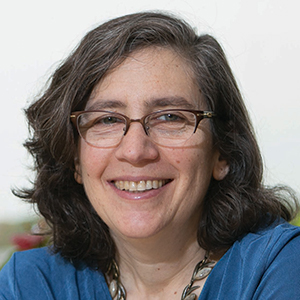
Computation is the new experiment
After decades of playing second fiddle, computation is now taking center stage — achieving critical insights that experimentation alone cannot provide. We are witnessing a dramatic rise in artificial intelligence–based methods coupled with year-on-year improvements of physics-based approaches. We now can fold a protein accurately from sequence alone!
Game-changing methods in protein and enzyme design are hurtling toward us. Scientists now can integrate numerous experimental data sets into computational models to explore previously unseen elements at (and across) scales never before achieved. Computational simulations are rewriting textbooks — from molecules to system dynamics and function. Machine learning is transforming drug design and development.
All in all, you will not find a symposium at Discover BMB, the annual meeting of the American Society for Biochemistry and Molecular Biology, filled with more excitement and possibility than ours. Buckle up for a thrilling ride in March in Seattle!
Keywords: Artificial intelligence, structural biology, simulation, drug discovery, bioinformatics, systems biology, machine learning.
Who should attend: All who want to find out how computation is transforming biological problem-solving.
Theme song: “Respect” by Aretha Franklin, because computation deserves it.
This session is powered by a powerful flux capacitor.
Speakers
Structure determination
Debora Marks, Harvard Medical School
Rommie E. Amaro (chair), University of California, San Diego
Ramanathan Arvind, Argonne National Laboratory; University of Chicago
Jason Perry, Gilead Sciences Inc.
Drug design
John Chodera, Sloan Kettering Institute
David Baker, University of Washington
Steve Capuzzi, Vertex Pharmaceuticals
Celia Schiffer (chair), University of Massachusetts Chan Medical School
Bioinformatics / Systems biology
Marian Walhout, University of Massachusetts Chan Medical School
Janet George, Intel Corporation
Ivet Bahar (chair), University of Pittsburgh School of Medicine
Henry van dem Bedam, AtomWise Inc.
The complete list
Learn about all 11 symposia planned for Discover BMB 2023:- Protein Machines and Disorder
- Regulation of RNA
- Organelles, Mechanisms and Phase Properties of Cellular Quality Control
- Lipid Dynamics and Signals in Membrane and Protein Structure
- Frontiers in Carbohydrate Synthesis and Recognition
- Bias In, Bias Out in Data Science
- Cell Signaling — New Tools and Emerging Concepts
- Education and Professional Development
- Biochemistry of Elemental Cycling
- Advances in Organismal and Cellular Metabolism
- Artificial Intelligence and Machine Learning in Structural Biology, Drug Design and Systems Biology
Enjoy reading ASBMB Today?
Become a member to receive the print edition four times a year and the digital edition monthly.
Learn moreGet the latest from ASBMB Today
Enter your email address, and we’ll send you a weekly email with recent articles, interviews and more.
Latest in Science
Science highlights or most popular articles

Key regulator of cholesterol protects against Alzheimer’s disease
A new study identifies oxysterol-binding protein-related protein 6 as a central controller of brain cholesterol balance, with protective effects against Alzheimer’s-related neurodegeneration.

From humble beginnings to unlocking lysosomal secrets
Monther Abu–Remaileh will receive the ASBMB’s 2026 Walter A. Shaw Young Investigator Award in Lipid Research at the ASBMB Annual Meeting, March 7-10 in Washington, D.C.

Chemistry meets biology to thwart parasites
Margaret Phillips will receive the Alice and C. C. Wang Award in Molecular Parasitology at the ASBMB Annual Meeting, March 7-10 in Washington, D.C.

ASBMB announces 2026 JBC/Tabor awardees
The seven awardees are first authors of outstanding papers published in 2025 in the Journal of Biological Chemistry.

Missing lipid shrinks heart and lowers exercise capacity
Researchers uncovered the essential role of PLAAT1 in maintaining heart cardiolipin, mitochondrial function and energy metabolism, linking this enzyme to exercise capacity and potential cardiovascular disease pathways.

Decoding how bacteria flip host’s molecular switches
Kim Orth will receive the Earl and Thressa Stadtman Distinguished Scientists Award at the ASBMB Annual Meeting, March 7–10, just outside of Washington, D.C.


